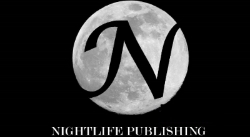Most books dedicated to the craft of writing mention the
importance of reading to the writing life. Stephen King boiled it down to “If
you don’t have time to read, then you don’t have time to write.” Other less
famous authors also stress the need to read, but few of them provide details on
exactly what should be read.
I’m editing two novels and writing a third right now. I’ve
had a chance to boil down the “what to read” idea into something that works for
me. Rather than give you a biased and personal list of things to read, I’d like to suggest a few categories that
are applicable no matter what style or genre you write in.
The best books for writers to read are:
- Books in your Genre(s): Writing genre fiction involves manipulating, stretching and often breaking the conventions that define that genre (See Genre Fiction: Clichés, Conventions and Evolution). How do you know what conventions you are playing with if you’re not familiar with those them in the first place? Reading the established classics in your chosen genres, as well as the popular and new writers, will help you both understand where the genre has been and where it is going. This will help you define your own personal niche in the long run where you can redefine expectations. (See Developing Your Own Sub Genre). This type of reading is often easy for writers because we have the natural tendency to write in the genres we enjoy reading. It takes a certain amount of mercenary fortitude to write in genres purely for their financial potential.
- Books on Subjects Your Characters Know: Part of the suggestion of “write what you know” comes from the idea that the more familiar the writer is with the subject matter, the more authentic the story becomes. The suspension of disbelief required for immersion is reduced and readers think of your characters and settings as more real than imaginary. So if your characters know a lot about forensic psychology or mescal or French fashion or field artillery, then you need to know it too. Reading both the unadorned technical books on your characters passions, as well as the fiction that incorporates those elements, will give your work both the facts and the feel that readers are looking for. This type of reading is also not hard for writers since our characters are often aspects of ourselves and they know about (or want to know about) the same things we want to know.
- Books in Genres You Like or Are Interested In: Writing is a great way to expand your horizons. When the stories you work on require some knowledge or perspective that you’re unfamiliar with, you can take that opportunity to expose yourself to new information. When you are looking for a new wrinkle to add or experiment with to separate your craft from other writers, reading something from a different category can provide fresh inspiration. You may not like every book you read from these foreign genres. Reading things outside your chosen niche might only serve to remind you why you stick with the genre you have, but any kind of inspiration is helpful, even if it is negative.
- Current Events: No matter what stories we write or what time periods we write about, the voice of every writer is shaped by the world they live in. Novels written during Prohibition offer a glimpse into that world even if they didn’t deal with bootlegging and speakeasies. Works released before and after 9/11 see the world in stark contrast to each other. If you gain a better sense of both the banal and extraordinary events that shape our society, your voice will be clearer when you sit down to write. Some of my most enduring plots and themes come not from fiction, but from fact (See How Much Inspiration Do You Need?)
- Books on Writing and Publishing: Publishing in the 21st Century is a moving target. Whether you see yourself as a traditional writer, a self-published author or and independent publisher (See What is the Difference between Self-Publishing and Independent Publishing?) you have to juggle being a CEO, a salesman, and a social scientist, all while trying to find the time to write. While you could figure out everything for yourself through trial and error, it makes more sense to use the tips and tricks other writers have found to navigate this complex industry. You won’t agree with every suggestion you find on business or craft, but you’ll expand your range of options and perspectives if you take some time to educate yourself about modern publishing.
So what types of books do you read as a writer? Leave a
comment below and let me know.
Have fun.
Gamal

